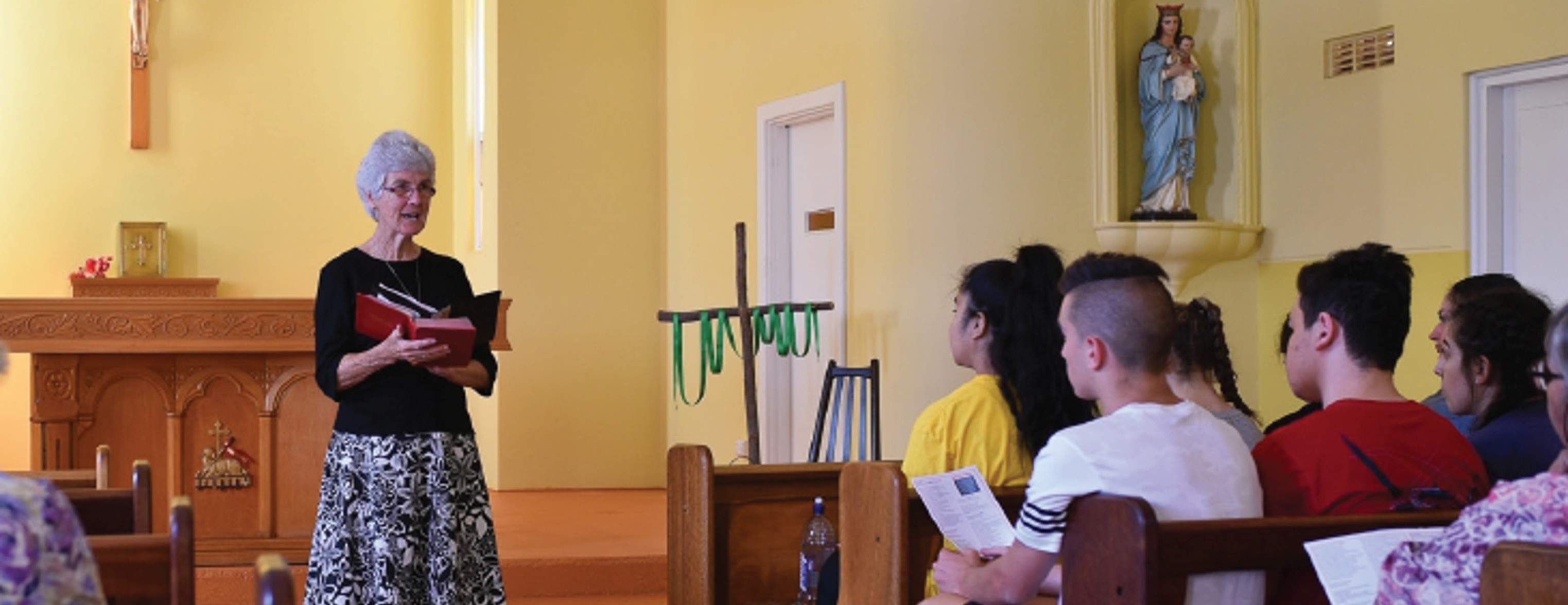Lay Leaders of Liturgy
National Liturgical Council

As one body we have many parts, and all the parts do not have the same function, so we, though many, are one body in Christ and individually parts of one another. Since we have gifts that differ according to the grace given to us, let us exercise them…
Romans 12:5-6.
When the Church’s liturgy is celebrated, it is the Body of Christ gathered to give praise and thanks to God with Christ, through the power of the Holy Spirit. The liturgy is a public service to a community, the Church and to the world. The liturgy celebrates the paschal mystery of Christ and the baptised community, the worshipping assembly, participate in that mystery of the dying and rising of Christ.
There are a variety of ministries within the celebration of the liturgy, and each of these ministries are gifts given by God’s Spirit to build up the Body of Christ. One of these ministries is that of the presider, the one called by the faith community to lead the people of God in its public prayer. Over many centuries, the one called to lead the liturgy was always called to the ordained ministry – Bishop, Priest & Deacon.
In recent decades, many lay men and women have also been called to lead the Church's liturgy. The Liturgy of the Word is frequently led by lay members of the community, sometimes with communion, and catechists are charged with celebrating the Word of God with children on Sundays and other days.
Marriages and Funerals outside Mass can also be led by trained leaders, with the permission of the local Bishop. In an emergency situation, lay people can baptise. The Liturgy of the Hours, or Prayer of the Church, can be prayed daily in any setting. These are frequently led by men and women of prayer.
Every week, many faithful parishioners engage in prayerful visits to the sick in the name of the Church and minister communion to the homebound and those in hospitals and places of residential care. Some may also minister Viaticum, with permission.
The Book of Blessings contains rites for a variety of circumstances and needs that make provision for lay-leadership. In rural and remote communities, lay members of the people of God regularly exercise the leadership on a Sunday when an ordained priest is not available to preside at the celebration of the Eucharist.
These lay leaders build up the church and offer fitting praise and thanks to God, the source of all goodness.
.................................................................................
the situation has emerged, that there is a call for lay members of the people of God to exercise the leadership of the celebration of the liturgy, particularly on a Sunday when an ordained priest is not available to preside at the celebration of the Eucharist. These lay leaders of liturgy may be delegated to lead the celebration of the liturgy. It is important that these leaders are fully initiated members of the faith community, committed to the living of their catholic faith, and show a willingness to ongoing formation in the liturgy and their call to this particular ministry of liturgical leadership. The liturgies that permit a lay leader are Celebrations of the Word and Communion, Liturgy of the Hours, some Blessings, and The Order of Christian Funerals.
Celebrations of the Word and Communion
It is important that those called to leadership of these liturgies are familiar with the provisions of the Directory for Sunday Celebrations in the Absence of a Priest (1988)
The liturgy follows the structure of:
Gathering Rite
Proclamation and listening to the Word
Proclamation of Praise
Concluding Rite.
The full texts of this liturgy can be found in Sunday Celebrations of Word and Hours (Canadian Catholic Bishops Conference, 1995), Pastoral Handbook for the Dioceses of Australia: Sunday Celebration of the Word, Sunday Celebration of the Hours (National Liturgical Commission, 2004)
Liturgy of the Hours
The daily prayer of the whole church celebrates the presence of Christ and gives praise and thanks to God through Christ and the power of the Holy Spirit. This oldest form of communal prayer coincides with the various times of the day: Morning, During the Day, Evening, Night. Some of the resources recommend that this prayer be celebrated in parishes during the week or if this is not possible, maybe one or two days through the week eg. Evening Prayer on Fridays or Evening Prayer on Sundays.
Blessings
The Book of Blessings contains many rituals for various needs and occasions that may be led by a layperson. We are reminded that: Other laymen and laywomen in virtue of the universal Priesthood … may celebrate certain blessings. (Book of Blessings 18)
Order of Christian Funerals
The various liturgies contained in the Order of Christian Funerals offer the opportunity for a lay person to lead them, especially if a priest or deacon is not available, especially, the celebration of the Vigil for the Deceased and the Rite of Committal at the graveside or crematorium. It may also be possible (with the approval of the local Bishop) to lead the Funeral Rite, and then when a priest is available, celebrate a Memorial Mass at a time suitable for the family of the deceased.
The call to leadership of the liturgy requires deep commitment, reverence for the Word of God, confidence in their ability to lead the prayer of the worshipping community, and a witness to the gospel as their way of life. This call is one of mutuality in that it means collaborating with all those who are called to the various liturgical ministries, so that the celebration of the liturgy is truly an enriching and faith-filled experience for the people of God.
